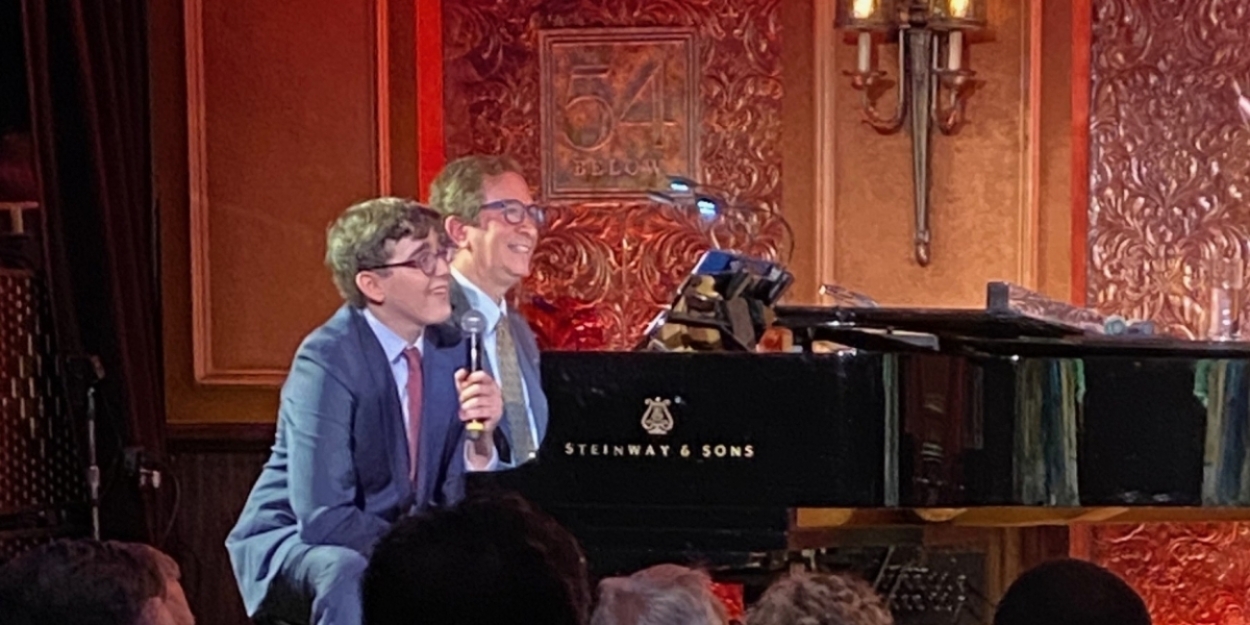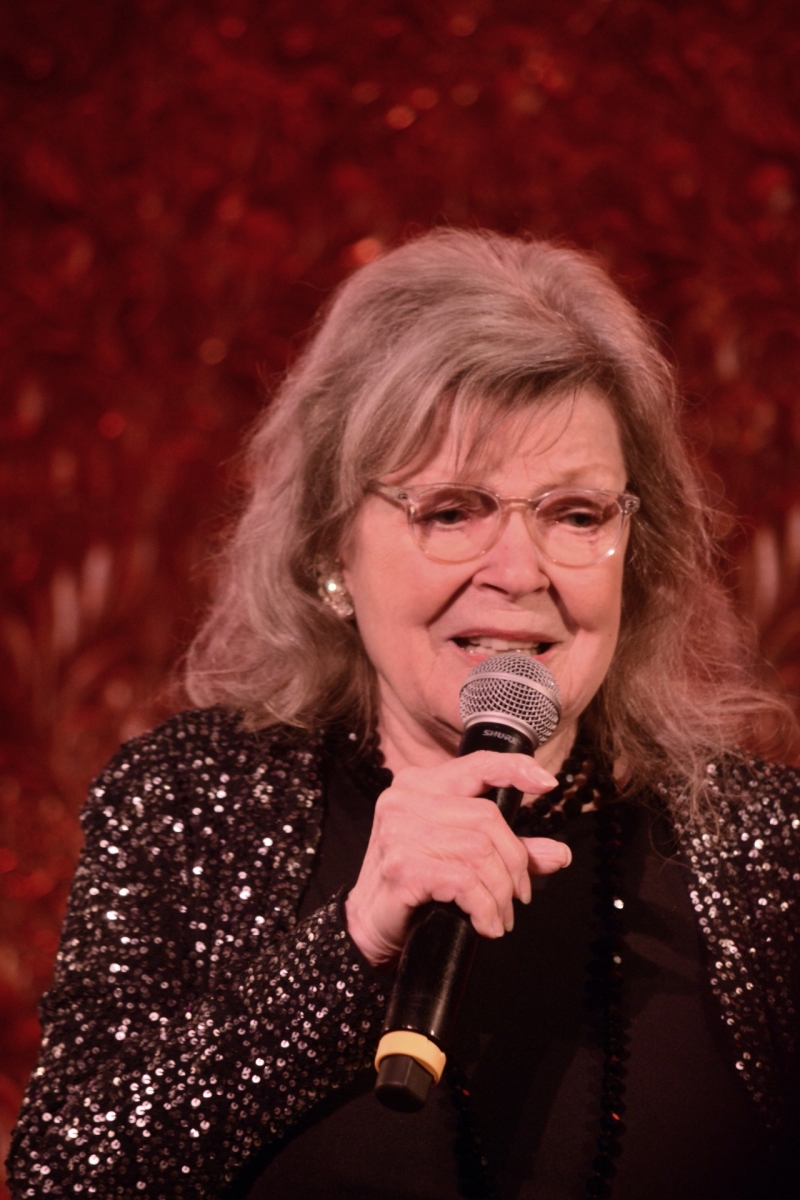Review: Backstage Babble Uncovers Broadway Flop History at 54 Below
A celebration of hidden gems from musicals that tried, but died

Chalk up another success for the creative programmers of 54 Below! BACKSTAGE BABBLE CELEBRATES Joe Allen RESTAURANT proved that you can have a successful cabaret night centered on Broadway shows that were financial flops. To dismiss shows with short runs is short-sighted. They have their ardent devotees. There were some real gems honored at the April 29th evening, including 1983’s Marilyn: An American Fable. Willy Falk sang a song he originated in the show, “You Are So Beyond,” to approving cheers of (re)discovery.
The term “dubious distinction” springs to mind when a Broadway production’s poster joins the others on the wall of the Manhattan theatre district’s restaurant/bar Joe Allen, advertisements for well-intentioned projects that didn’t do so well. The indelicate word to describe them is FLOPS. Some had very short runs because audiences didn’t run to see them, some producers had run out of money, and some got reviews that made it sound like they’d be run out of town. (Usually, they’d already been out of town, struggling through performances in other cities). And then there are the ones that, after previews, had an opening night that turned out to also be the closing night. But there on that wall on West 46th Street, the reminders hang. Well, hang it all! Why not ask some of the introspective, intrepid survivors of those ordeals to revisit them? It could make for an intriguing show for ever-wondering minds of theatre fans. Wounds and scars should have healed, and maybe it’s time to be philosophical, wistfully nostalgic, with 20/20 hindsight here in the 2020s. There are anecdotes to share and ancient grievances to air, with enough years in the rear view mirror for reflections. The chin-up prediction that “Someday we’ll look back on all this and laugh” can come true — if not truly a laugh, a wry smile and sigh.
The happy news is that the sad commercial fates of these also-rans did indeed provide fabulous fodder for a night at 54 Below that was much more than a mere collection of curiosities. Dig through the rubble of musicals that crashed and burned and you’ll often find buried treasures. Blithe host/curator/narrator Charles Kirsch stated this same premise he’d posited previously when co-hosting (with Robert W. Schneider) a cousin of this concept called Broadway Bound: The Shows That Never Came to Broadway. The very entertaining April 29th set was loaded with worthy wonders. Hearing them performed by those who’d been in the casts, along with their first-hand accounts of what went wrong, made for glorious glimpses into history brought to life. There was more wit than wincing as the veterans of Broadway wars recalled the slings and arrows of outrageous fortunes, although a few had to rely on having handy pages containing the words to be sung. One, Michael Kubala, started off the festivities with some fun, doing the title number of a Broadway musical titled A Broadway Musical.
Joe Allen opened in 1965. So did the musical Kelly. Its poster was the first to adorn the walls (by request of the company members who went there to hang out and perhaps cry in their beers), starting the tradition.

Original cast member and all-around delight Anita Gillette received a very strong demonstration of affection and support from the large 54 Below crowd as she recollected the woes and touched the heart with a gem of a ballad that had been hers: the emotional “I’ll Never Go There Anymore,” which is itself about memories. Some stars talked for a while and, while they had terrific tales, it made for a longer-than-usual evening that might have been just a little too much of a good thing for some. Getting a big hand for “Penelope’s Hand,” as he reprised his big 1976 solo, Martin Vidnovic went into dishy detail about the not-so-sweet saga of Home, Sweet Homer starring Yul Brynner as Odysseus in 1976. Its odd odyssey along the Great White Way concluded on opening night. Also in that bicentennial year was 1600 Pennsylvania Avenue, soon gone, but Beth Fowler and Jack Witham told us they met when they were both cast and they’ve had their own “long run” offstage — as a married couple (47 years). They left the singing of something from the score, “Take Care of This House,” to the shining vocal skills of Elena Shaddow.
Heather Mac Rae also chatted about love within a cast; she’d cast her eyes on her leading man when they began rehearsals for Here’s Where I Belong. Soon they were a cozily co-habitating couple. She brought warmth and believability to the musical’s title song, with a little vocal help from Music Director and pianist Michael Lavine, who seemed to comfortably “belong” to the styles of all the music as he played the rarities with care and respect, as if they were standards. He adeptly rejuvenated them with apparent pleasure. Especially memorable and engaging, also, with sassy stories and sparke in their selections were: Brenda Braxton representing Legs Diamond; Robert Creighton (Laughing Room Only); Josie de Guzman (Nick and Nora).
Three co-writers of shows told tales, too: Amusingly, Amanda Green talked of the highs and lows of her High Fidelity experience, and offered a cheeky song sample. The other two spoke, but didn’t sing themselves. They were Michael Korie of Doctor Zhivago (an example of a production with a brief Broadway life but a healthy afterlife in productions around the world). He introduced Tam Mutu, who played the title role in New York and, robustly, offered a sample of its score. In a filmed intro, composer Alan Menken addressed Leap of Faith before Lucia Giannetta ably leaped into one of its numbers. These three shows were the most recent productions on the agenda, all having been born in this century — as was our very well-prepared host/historian Charles Kirsch. His mini-interviews and introductions were super-smooth, done with no notes. While he didn’t try to sugar-coat the troubles that beset some productions, he didn’t mock their miseries with his slyer comments. I’ve taken in his cabaret events at 54 Below and J2 Spotlight Musical Theater as well his “Backstage Babble” podcasts and, while I haven’t seen the X-rays from his medical file, I don’t think he has a mean bone in his body.
The program’s final number ended things powerfully, providing the strongest evidence (and hope) that a quickly-disappearing musical can have a successful afterlife, after all: Witness Merrily We Roll Along, back from the ashes and merrily rolling along in later mountings and currently a big Broadway hit. Jim Walton, a lead in the original, brought the eventful evening to an emotional close with the optimistic vision of “Our Time.” Throughout the night, on two screens, we saw the relevant show posters adorning Joe Allen’s wall. And a show about flop shows was not such an off-the-wall concept. The flops made for a hit. Bravo!
Header photo of Charles Kirsch (at left) with Michael Lavine at the piano courtesy of Charles Kirsch.
Find more shows to see at 54 Below on their website.
Learn more about Backstage Babble podcast here.
Comments
.png)
|
.png)
|
Videos

